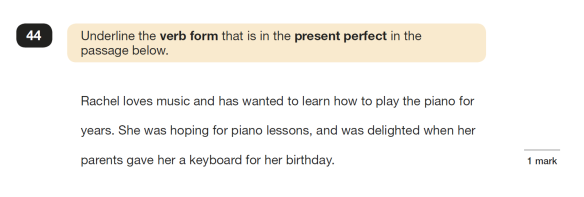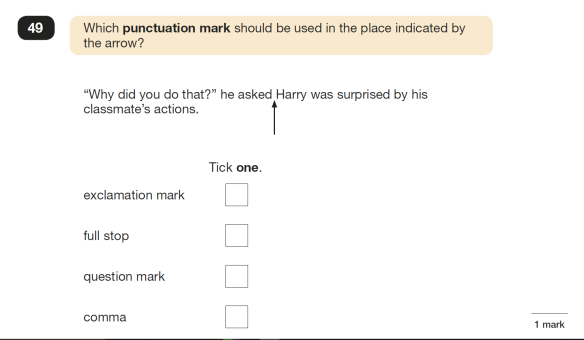I don’t have any data as evidence for what I am about to write here. I don’t even know where this will be heading. All I have are thoughts and feelings and opinions to fuel the meaning and message. And experience.
In my 30 years of teaching and the six years since, I have never known an Education Secretary to have an empathy with teachers and teaching. I’m not sure that any have had an empathy with what education is. I’m not going to explore nuances between empathy and understanding and other similar words that suggest a connect between their political roles and the occupation over which they presided – for me, all Education Secretaries were more or less bereft of any variation on the theme.
I’m sure that suggests a considerable arrogance on my part. So be it. But I never fully warmed to one, and positively despised most. Estelle Morris would be the only Secretary of State for Education who seemed to have some rapport with the teaching profession, in her active role then and since when she commentates on the current state of educational affairs.
I am prompted to write this today, not surprisingly, because of Nicky Morgan’s attendance yesterday as Education Secretary at the NASUWT Easter conference. I’m not going to bother to research actual quotes, nor any supporting nonsense taken from the recent White Paper: I will simply reflect on responses I had from hearing about her appearance, seeing quite a bit of this on various news coverage, and the thoughts and feelings and opinions I have been dealing with since.
One comment from one news report was the statement that Nicky Morgan had been ‘brave’ to attend the conference. That got me going, in my already annoyed response mode. I understand what was meant by the comment, but why is it ‘brave’ for an Education Secretary to have to speak to and defend what she represents in front of a significant representation of the profession over which she presides in considerable power?
There was one moment in Morgan’s speech to conference about the success of schools and, I think, how they would be even more successful when all are compelled to become academies which drew a chorus of disapproval. Not raucous by any means, but a clear resonance of disagreeing boos. Morgan smiled – that defensive smile which is a fleeting moment of embarrassed percipience, immediately demolished by an assurance born out of a total lack of empathy – and then stopped in her stride to chide teachers for their response. Her remonstrance was that they should celebrate their successes, missing entirely the point of their anger. And this is the point: she, like all those before her, has a total disconnect with the thoughts and feelings and opinions of teachers. Such a collective [and remarkably polite] disagreement ought to ring alarm bells in a politician, but no such mechanism exists inside an Education Secretary’s head.
It should be hard to be angry with and offended by Nicky Morgan as she appears quite harmless as a person, but it isn’t. She’s not odious like her predecessor Michael Gove, but I honestly feel she is simply stupid, and that grates – not as much, but in a different and still deeply disappointed way. You would think that after her shambolic appearance on the recent BBC Question Time [specifically over disability cuts announced in the budget] and more pertinently, the broad opposing backlash – including Tory councillors – to her announcement about the national academisation of schools, that she would not talk to teachers in such an arrogant, patronising way. But she did. And that is the problem: she is a politician, in this specific case, having no connection with the realities of teaching and yet an absolute ideological adherence to policies totally at odds with the thoughts, feelings and opinions of the majority in that profession.
But as I have said, this is nothing new. I also know I haven’t said anything new above. And whilst I have challenged similar disconnects from Education Secretaries and other government representatives over an entire teaching career to ultimately little avail, I can’t help myself. Better outside than swirling inside my head.
When Morgan was castigating teachers about their ‘successes’ reaction it reminded me of how in my early days of having to deal with increasingly ludicrous government interference in curriculum matters, teachers always did their best to make daft ideas work. I obviously talk as an English teacher dealing with dictates on the English curriculum. Perhaps some brief history is useful here.
When I say ‘early days’ I mean in the early to mid 1990s, but as I said, I’m not going to undertake any detailed research here: this is from memory, seared into my whole teaching being from profound experience, but not documented by chronological, informed external details. When I started as a teacher in 1980, I joined a great secondary school with great students and a great Head of English in a great part of Devon. There’s no need to detail this further. My first few years were all about getting the job done to the best of my ability – a practical reality. I was full of my own English teaching ideology – quite a bit being about literary theory [!] – but I wasn’t adversely affected by government interference/legislation.
I think this was a time of relative freedom anyway, in terms of teaching, but regardless of how true this was, I had the day-to-day to occupy my attention and efforts. I think the first significant Government intervention affecting me was the Clegg [?] Report and action on teacher’s pay, which included an increase!
The first significant external impact on my teaching was actually through an HMI report Bullock Revisited in 1982 [I did cheat for that date]. Without entering into the ever-expanding universe of nostalgic reverie here, one of the main observations in this was about the positive impact on teaching and learning through oracy [speaking and listening]. In a nutshell, this was such an exciting and empowering revelation and I became actively involved in following its ideology in practice as well as dissemination to fellow professionals – at a time when we indulged in this kind of dynamic sharing.
To be honest, I don’t recall much that is similar around this time, apart from my continued excitement and engagement as an English teacher, both in my positive school environment and in a positive local authority advisory environment. Therefore, the next significant external impact was the Cox Report on English [1989, just cheated again]. Whilst this in some respects became the first negative interference in terms of legislating for changes with which I disagreed, many of us in the job at the time recognised the common sense of its overall focus and attempts to provide outlines and structures for the teaching of English nationally.
Which brings me back to those ‘successes’ made by teachers. It was through English teachers, for example, taking certain if ill-conceived elements from Cox – and from subsequent related suggestions and dictates – and by sheer hard work shaping these into positive outcomes that they then and ever since have made a ‘success’ out of the nonsense over which successive Education Secretaries have presided and in many cases made their ideological warfare on teachers and state education.
Of course the most insidious of this warfare was exemplified by the SATs introduced in 1991 at Key Stage 1. Perhaps predictable as an educational need but more-so a political necessity [having to demonstrate control], the implementation of national testing was never as even remotely useful as it might have been because it was predicated then on a complete and cynical lack of trust in teacher assessment, and therefore precluded serious teacher involvement in design and implementation. When Key Stage 3 SATs were introduced by Labout in 1998 [yes, I have…] that was the death-knell of a positive teaching environment for me [not my school, but on a wider level], and the inevitable target culture that followed nailed the proverbial shut.
So when Morgan remonstrates teachers for not celebrating their success in making teaching work, the irony thunders for professional with my history of experience, and those even new to the job. And when Morgan preaches about how academisation will offer teachers ‘autonomy’ that too thunders like a shit-storm because we all know that continuing SATs in primary schools and GCSEs at secondary level – all government controlled [think of the current SPaG debacle; and Gove’s personal manipulation of some GCSEs] – are the singular driving force of what gets done in the classroom: as far from being autonomous as one can get.
And I haven’t even mentioned Inspections….
So I have arrived at where I wasn’t entirely sure I would be and at best I have unraveled the swirling in my head onto the page in what I hope is some cogent and sensible effort to explain the thoughts and feelings and opinions of someone who did teach for 30 years, and never respected a single Education Secretary – in the ideological way I would have adored.
























